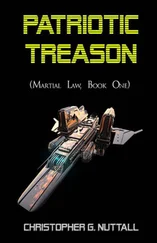We didn’t see all of this at Cottbus , she thought, as the first missiles slipped through the defences and slammed into a superdreadnaught, concentrating on knocking down its shields. The thought was galling, but it had to be accepted. If she had refused battle at Hawthorn, she wouldn’t have known about the improvements in Admiral Wilhelm’s systems until it was too late. We’re going to have to go into every system on the assumption we’re facing modern systems…
She scowled. She’d spent two years in the Logistics Department of the Imperial Navy, before being assigned to the Havoc as First Officer, and she had a rough idea of just how hard it was to get modern hardware out into the hands of people who needed it. The Sector Fleets on the Frontier tended to be better equipped than those in the interior sectors, but it wasn’t uncommon for modern hardware, stolen by corrupt officers in various logistic hubs, to get out to pirates first before reaching the Imperial Navy. No matter how much technology Admiral Wilhelm had obtained, from whoever it was who was supplying him, there would be hard and fast limits.
The problem seemed insolvable, but she had enough experience to figure out parts of it. Admiral Wilhelm wouldn’t have sent modern hardware to worlds that weren’t directly involved in his war effort, because that would have been nothing, but a waste. He would have needed to arm four sector fleets, which suggested that he wouldn’t have had enough modern hardware to equip his worlds anyway, with the exception of Cottbus. The logic seemed tempting enough, but logic, in so many ways, was merely a way to be wrong with confidence. The only way to know for sure would be to attack one of his logistics hubs and see what happened.
In other words, no changes there, then , she thought dryly. The concept of up-to-date intelligence in modern warfare was something of a joke. The enemy would have days, if not weeks, to change everything before her forces arrived. At least we can run a Freebooter or two through the system first .
She looked up as the superdreadnaught twitched, and then expelled another flight of missiles towards the enemy fleet. The range was closing now as both sides went to rapid fire and, at such ranges, the enemy’s superiority in missile weight would begin to tell. She watched dispassionately as they launched wave after wave of missiles, staggering the launches so that her point defence would always be engaged, and knew that it was time to disengage.
“Helm, prepare to flicker out,” she ordered, watching as the enemy fleet launched another wave of missiles. If they were lucky, the fleet would waste hundreds of missiles on targets that weren’t there any more. “Communications, inform the other ships to follow us out to the first waypoint on my command. I think its time to leave.”
She smiled as the enemy missiles closed in on her position, her point defence opening fire to engage them. “Flicker,” she ordered. She braced herself as soon as she issued the order. “Take us out of here.”
The burst of nausea shocked her, as always, but it was driven away by relief and amusement. She’d destroyed one superdreadnaught and badly damaged two more, for no losses at all, beyond minor damage. By almost any standard, it was an excellent naval victory and one that would restore confidence to her entire remaining fleet. She could almost forget just how bad the odds actually were… and just how low their chances of actually surviving had become.
“Set course for the second waypoint as soon as we reach the first,” she ordered, as she called up the tactical map of the sector. Oddly, being away from Hawthorn had left her feeling rather free, almost like old times. “We’ll reload… and then we have some raiding to do.”
Charlie, who had been expecting poor Andy Gillingham to have been picked up by the local security forces — those loyal to Admiral Wilhelm, rather than the Empire — had been surprised when he sent messages to Sandra, and then shown up at her apartment. He’d suspected a trap from the start and had watched carefully, waiting for the other shoe to drop, but it seemed that they’d been either missed or Admiral Wilhelm had decided to leave them completely alone. It had taken two days of worrying before he’d realised the truth; Admiral Wilhelm’s people didn’t know that Andy Gillingham was their unwilling asset.
It made a grim kind of sense. The shipyards were, literally, over-crewed. Admiral Wilhelm had brought in trained personnel from four different sectors, just to ensure that he had enough starships and supplies to fight his war against the Provisional Government. Charlie had expected Gillingham and his fellows to be kept on the shipyards all the time, now that one of them had been revealed as a spy, but how could they all be crammed together indefinitely? The shipyard production rates might have fallen if morale had been allowed to fall… and cutting shore leave would have guaranteed a fall in morale. Gillingham and his fellows had to be allowed to land on the planet, if only for a few hours at a time, or the entire war effort would suffer.
The Empire, in its heyday, would have brought everyone who could have reasonably have sent the warning signal — as useless as it had been — and run them through a full interrogation, designed to sniff out any treacherous thoughts or mental conditioning. Charlie had expected that as well — and Gillingham, despite not having been properly conditioned, might well have been detected — but that too would have ruined morale. Colin had found so much support because the Empire mistreated everyone who didn’t have the right bloodline, but Admiral Wilhelm didn’t even have the kind of legitimacy provided by a thousand years of unbroken rule. If he treated his people badly, they might revolt against him and destroy his support base. If the shipyard were to be taken out, his entire war effort would grind to a halt.
They’d followed, as best as they could, the battle and its aftermath. The news channels had been full of propaganda — someone from Public Information had clearly gone to work for the Admiral — and had been claiming the complete destruction of the rebel fleet. There were other signs, however, that suggested otherwise, including the presence of two superdreadnaught squadrons in orbit and the rapid enhancement of the orbital defence network. Admiral Wilhelm was clearly worried about an attack on Cottbus — one carried out by units aware, now, that there would be no peace until Admiral Wilhelm was killed or forced to surrender — and it showed. The only question was who might be inclined to take advantage of it.
He wandered over to the terminal and checked it carefully. Admiral Wilhelm and his security officers would have been horrified to know that it existed, assuming that they didn’t already. The Empire-designed computer networks that existed on most planets, including Cottbus, were perfectly transparent to anyone who had the right command codes, allowing Imperial Intelligence to track everyone’s usage with ease. If someone was a suspected rebel, Imperial Intelligence could open their files and browse them carefully, looking for evidence or information they could use to support their claim — and encryption was forbidden, as was the development of secondary computer networks. The transparency of the system was common knowledge and very few used it for anything secure — apart from the Thousand Families, who were allowed private military-grade encryption — but it could still be useful. Sasha had ordered him to probe into the computers and see if they could locate anyone who might be helpful.
Admiral Wilhelm’s people had closed some of the access links into the system, including two that he was fairly sure that no one outside of Imperial Intelligence should have known about, but they hadn’t removed all of the private access codes. They were hardwired into the system, part of its very design, and gave whoever had access complete control of the system. It was a pity that the planetary system wasn’t connected to the orbiting shipyards or orbital fortresses, he’d reflected when he started to hack into the system, or they could have sabotaged them with comparative ease. The Imperial Navy had refused to allow such links; a wise precaution, as it turned out. It was difficult to hack into a starship’s systems unless you were already on the inside.
Читать дальше












